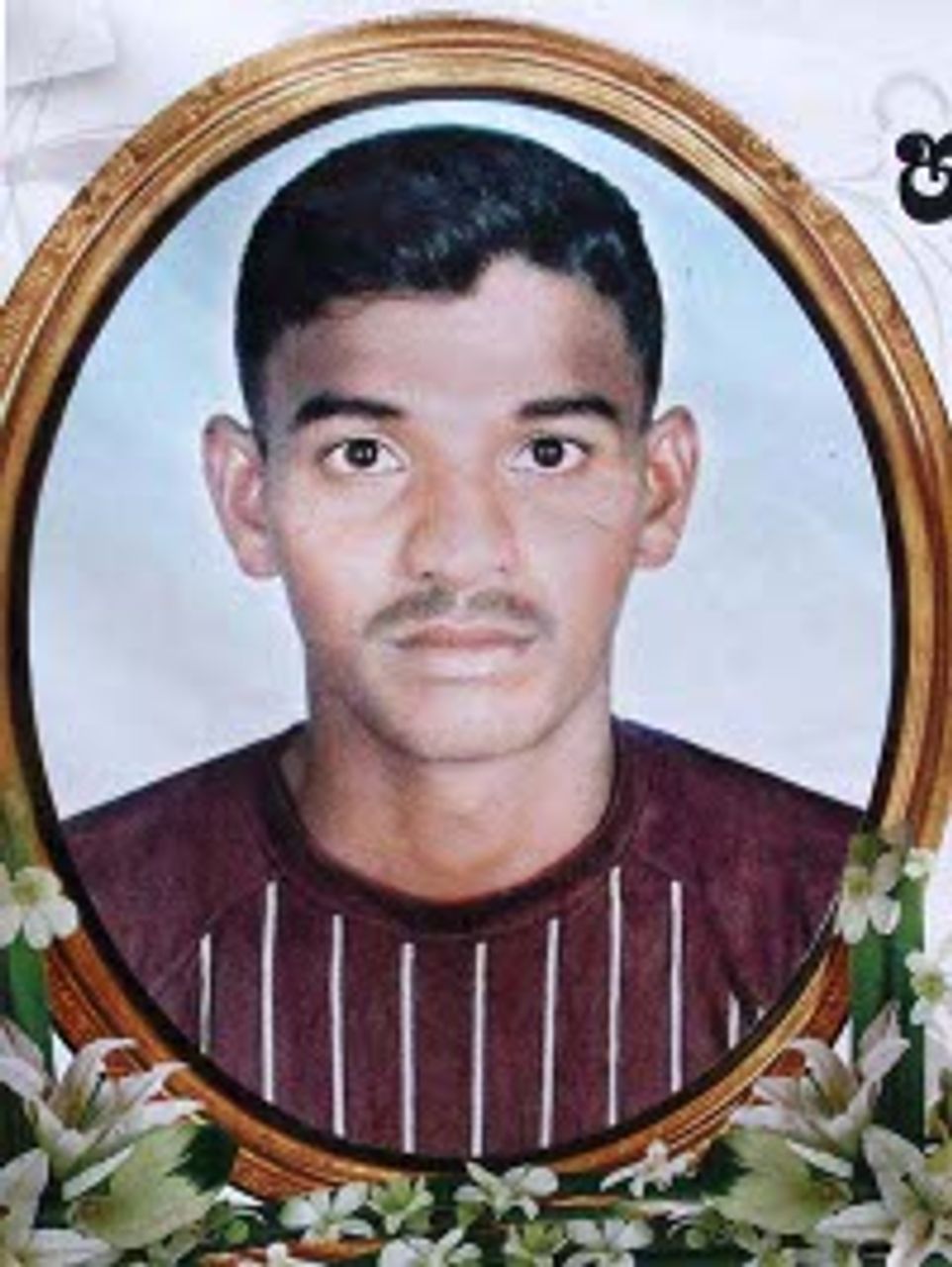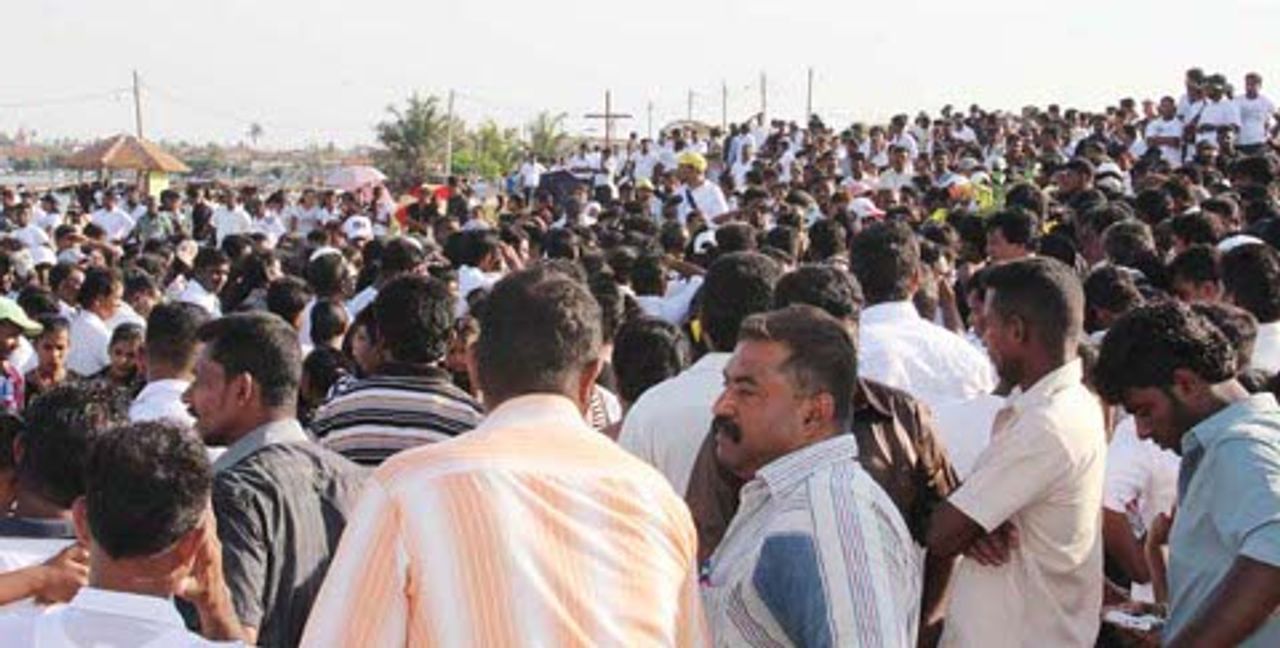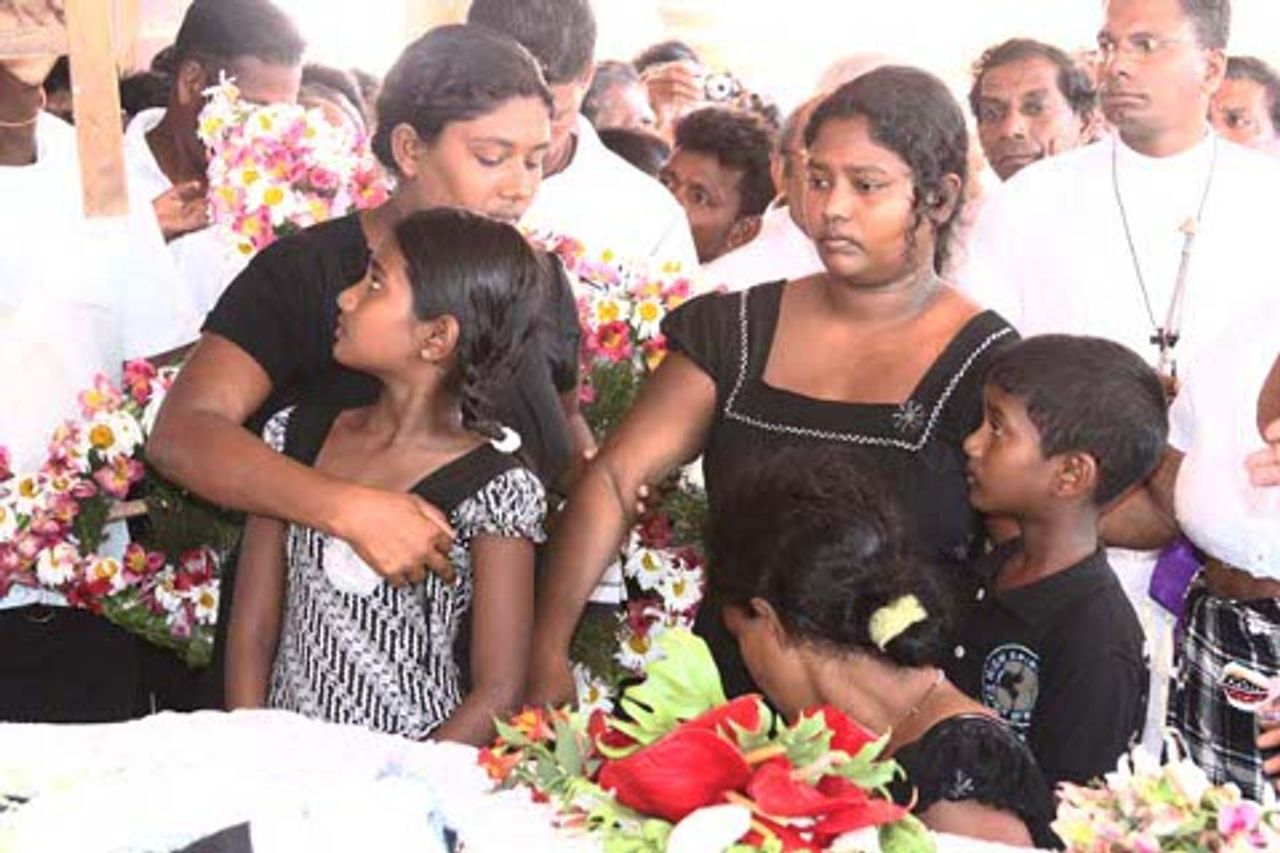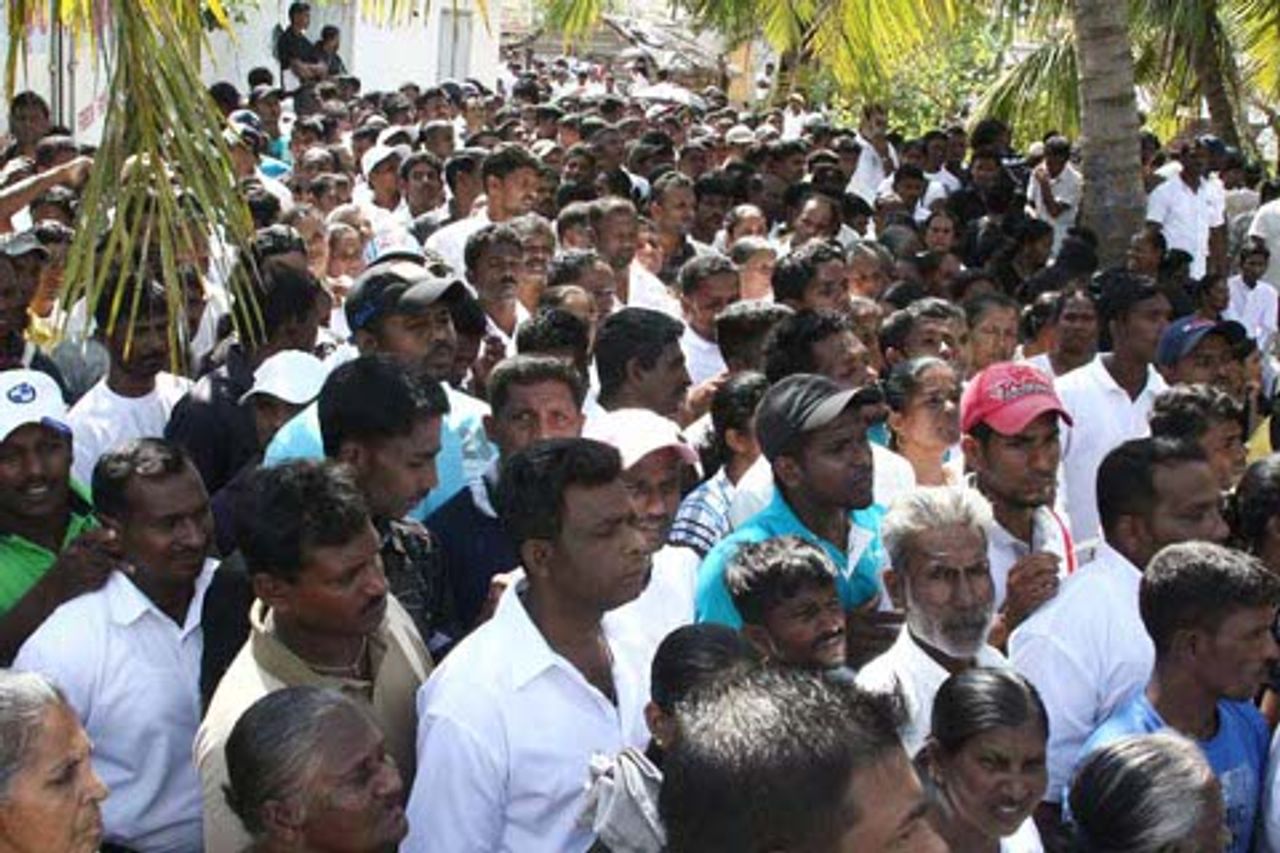The burial of Antony Fernando Warnakulasuriya, a fisherman killed by police on February 16, took place at Egodawatte cemetery in Chilaw on Saturday.
 Antony Warnakulasuriya
Antony WarnakulasuriyaWarnakulasuriya was shot dead during a protest by fishermen in Chilaw-Wella against fuel price hikes implemented by the government as part of International Monetary Fund (IMF) austerity measures. Three others were injured seriously in the shooting and are being treated at the Colombo National Hospital.
Badly affected by the high fuel price hike, fishermen, particularly in the north-western coastal belt, have been holding regular protests since February 12.
Starting in the morning of the funeral day, around 30,000 people came to Warnakulasuriya’s home to pay their last respects and to mark their opposition to the government. About 20,000 gathered in the cemetery. Such a large crowd is rare in Chilaw. Fishermen from villages all along the north-western coast, from Negombo to Kalpitiya, arrived in busloads at the funeral house.
 A section of the crowd at the cemetery
A section of the crowd at the cemeteryOn the day before the funeral, police obtained an order from the Chilaw Magistrate Court stating that “the death body is not allowed to be used for any violence.” The order was used to justify a large security presence and effectively ban any protest. About 1,500 police were on alert in and around Chilaw town. Hundreds of soldiers were deployed and armoured cars were on standby.
Nervous about the potential for protests by fishermen, the military and police kept their distance from where the funeral took place. It was left to the Catholic priests to control the funeral arrangements and block any expression of anger.
 Warnakulasuriya's grieving wife (right) and two children
Warnakulasuriya's grieving wife (right) and two childrenActing on the advice of Chilaw Bishop Walence Mendis, the family moved the body from the victim’s home at 2.30 p.m. and the burial was performed at 4.00 p.m. No speeches were allowed by relatives, the fishermen’s union or political parties for fear that the government and security forces would be criticised.
Although young people from the village had supported giving the Socialist Equality Party (SEP) the opportunity to speak, priest Claude Hysin blocked it, saying: “It can’t be allowed. Today this must remain peaceful.”
Well aware of public anger, no government ministers or local politicians attended the funeral. Last Friday, people booed Milroy Fernando, a government minister, and another parliamentarian from the area when they visited Warnakulasuriya’s house.
Opposition United National Party (UNP) leader Ranil Wickremesinghe arrived before the last rites and promised to raise the issue of compensation for Warnakulasuriya’s family.
Wickremesinghe and the UNP have blamed the fuel price hikes on government waste and corruption in a bid to capitalise on widespread anger over the IMF’s austerity measures while diverting attention from the underlying crisis of capitalism. In government, the UNP vigorously implemented the pro-market restructuring agenda of the IMF.
 Funeral procession
Funeral processionThe fuel price hike is just one of the measures imposed by the government. Others included devaluing the rupee against the US dollar, increasing bus and electricity charges and slashing government spending, all of which will impact on the living standards of working people. The IMF insisted on these steps in return for the release of $US800 million in loan instalments.
The police use of live ammunition against unarmed protesters could not have taken place without government approval at the highest levels. It was a calculated warning to working people that the government will not tolerate any opposition to the IMF’s conditions. It was also aimed at assuring big business and international investors that the austerity agenda will be implemented, whatever the political cost.
The attack on the protesting fishermen was similar to the police violence against Katunayake free trade zone workers last May when they demonstrated over wages and pensions. Police then used live ammunition to disperse the crowd, killing one worker, Roshen Chanaka.
One person from Chilaw town told the WSWS: “Antony died for a cause, which is relevant not only for fishermen. Fuel prices affect the people as a whole. Yesterday, electricity fares have also been increased. These things happen because there is no strong opposition that can challenge the government.”
The SEP campaigned in the area before, and on the day of, the funeral, distributing copies of the WSWS article entitled “Fisherman killed as Sri Lankan police fire on protest”. The article won a strong response from workers and youth.
During one campaign, a Chilaw councillor from the ruling United Peoples Freedom Alliance threatened SEP members, saying that anti-government leaflets should not be allowed. He warned that he would inform the police. A group of young fishermen stepped in to defend the SEP members and told them to continue their campaign.
Speaking to the WSWS, many fishermen and housewives at the funeral expressed sentiments such as: “The government must be responsible for this killing. We don’t trust the government’s promised fuel subsidy. We want fuel at the previous prices. Antony Warnakulasuriya sacrificed his life on behalf of whole fishing community.”
A young fisherman from Chilaw said: “We are not fighting merely for a subsidy. Fuel prices must at least be reduced to the previous level so that we can do our job. We are fighting to that end. We appeal to the media to stand by us.”
The police have attempted to defuse the anger over Warnakulasuriya’s death by ordering a bogus inquiry into the shooting and paying half a million rupees to his relatives. At the same time, in order to shift blame onto the protesters, police claim to have found swords, petrol bombs and clubs at the scene of the shooting. The Colombo media has dutifully echoed the police, publishing reports about “fishermen turning violent.”
In reality, the killing of an innocent fisherman while protesting against the government’s attacks on living standards has added to the groundswell of hostility to the government’s implementation of the IMF’s drastic austerity agenda.
